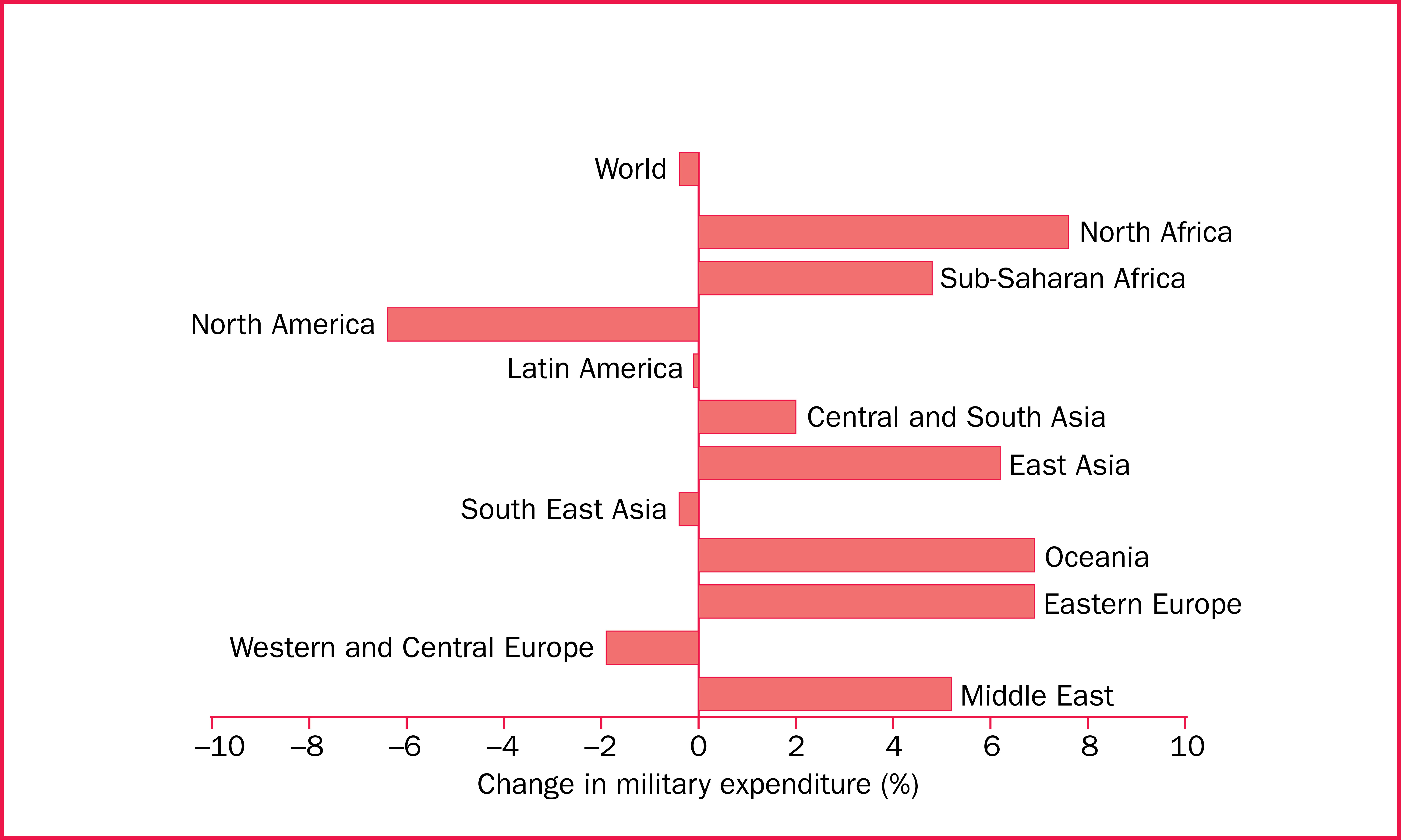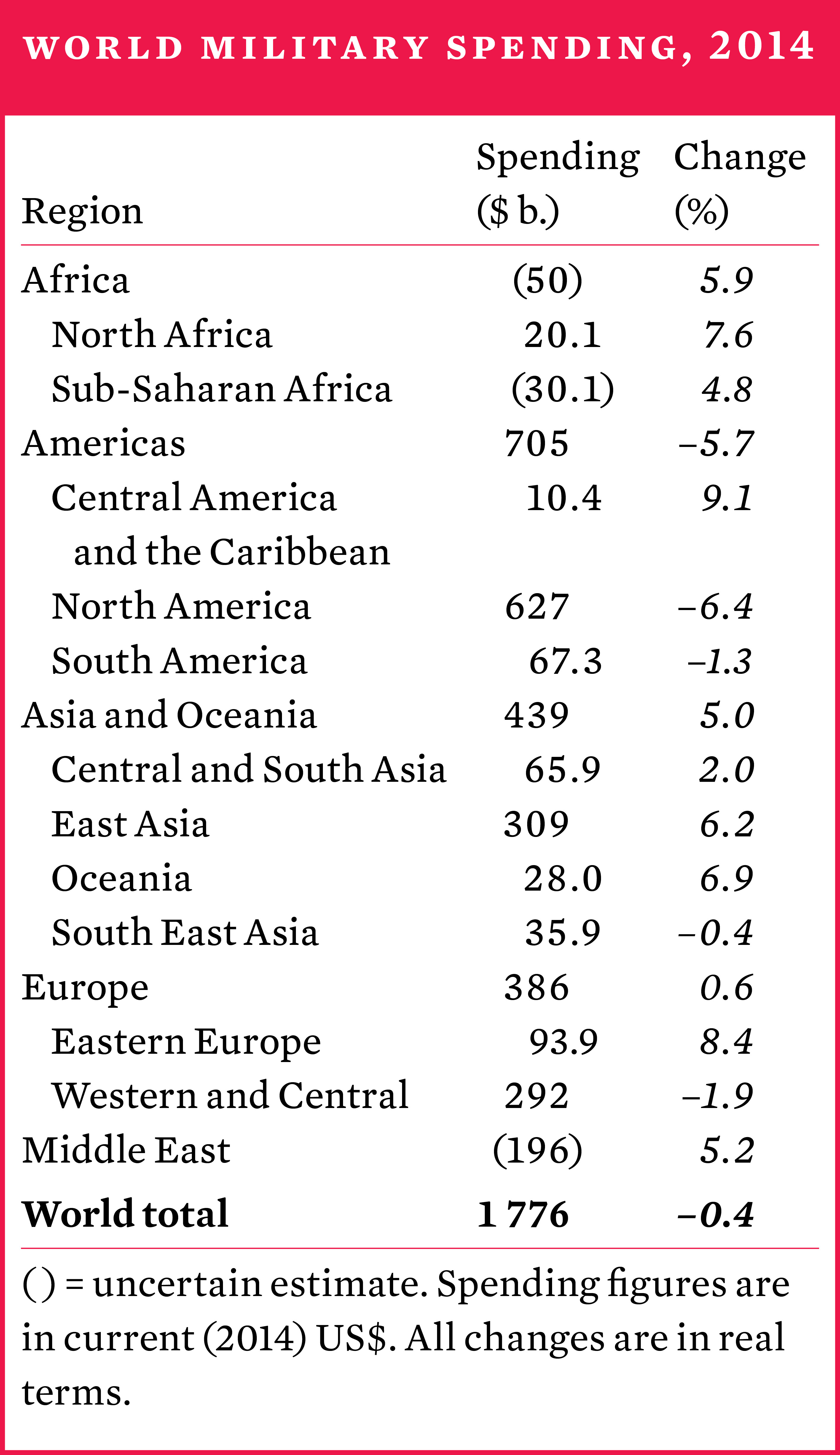9. Military expenditure
Summary
World military expenditure was estimated at $1776 billion in 2014, representing 2.3 per cent of global gross domestic product or $245 per person. Total expenditure was about 0.4 per cent lower in real terms than in 2013.
Military spending continued to increase rapidly in Africa, Eastern Europe and the Middle East. A combination of high oil prices until the latter part of 2014 and numerous regional conflicts contributed to rising military expenditure in several of the major spending countries in these regions. The conflicts in Ukraine, and in Iraq and Syria, among others, are likely to continue to drive military expenditure in a number of states in these regions. However, the dramatic fall in oil prices towards the end of 2014 may herald a change in the trend for some countries that are highly dependent on oil revenues—although the effect may not be felt for some time in those countries with substantial financial reserves.
Military spending in Asia and Oceania also rose in 2014, although this was almost entirely driven by the increase in China. Elsewhere in the region, there was a mixed pattern of increases and decreases. Meanwhile, military expenditure in Latin America and the Caribbean was essentially unchanged from 2013, with regional leader Brazil cutting spending due to its economic difficulties. However, the fight against drug cartels in Central America remained a key driver of increased spending in that subregion.
The reporting of military expenditure data to the UN
The United Nations Report on Military Expenditures remains an important source for official data on military expenditure. However, the response rate of UN member states to the annual request to submit data decreased in 2014, reversing an increase in 2013. The overall response rate remains low at 25 per cent.
The political sensitivity of military expenditure may be a primary reason for not reporting in some cases, but many states make their military budgets available online to the general public. Equally, the fact that many countries have responded at least once suggests that they have the capacity to report, but they may lack the resources or political commitment to respond consistently.
United States military spending
United States military expenditure continued to fall due to the ongoing withdrawal of US forces from Afghanistan and the effects of the Budget Control Act (BCA) of 2011. However, agreements in Congress in 2014 started to mitigate the impact of the BCA, in particular finding ways around the automatic, across-the-board cuts applied by the sequestration mechanism. The conflicts in Iraq and Ukraine may also slow the decline in spending on Overseas Contingency Operations that might be expected from the withdrawal of most of the US troops in Afghanistan. Nonetheless, US military spending is projected to fall again in 2015, albeit at a slower pace.
The availability of military expenditure data
While the availability of military expenditure data increased in the 1990s and early 2000s, this trend has slowed in the past 5–10 years, in particular in Africa and the Middle East. Analysis of data availability according to different country characteristics shows that civil liberties and levels of political freedom are strongly correlated with the availability of good quality military expenditure data, while state fragility is associated with a severe drop in data availability and quality. National income, however, is not a significant factor in explaining data availability, once the other two factors have been controlled.
Changes in military expenditure, by region, 2013–14

World military spending, 2014
